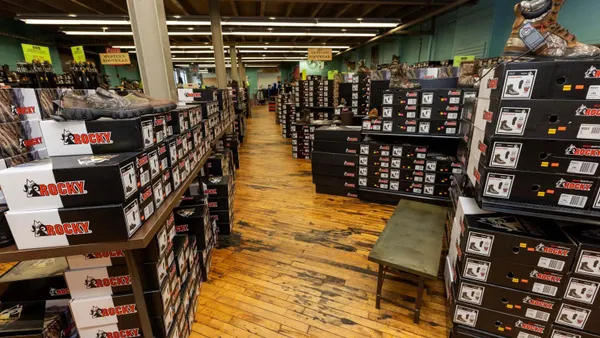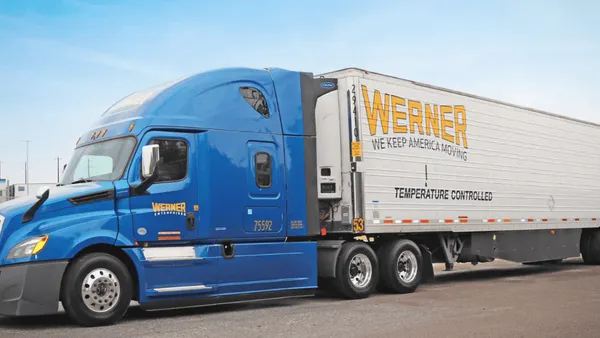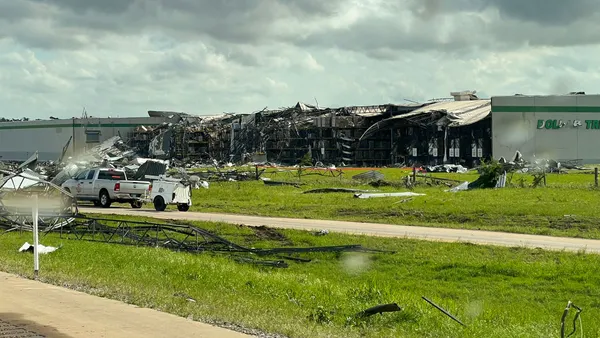Dive Brief:
- VF Corporation, the parent company of brands including The North Face, Timberland and Vans, has created a traceability mapping program that discloses tiers 1 through 4 of its products' supply chains.
- The apparel, footwear and accessories company is using traceability to map 100 of its brands’ products by December 2021, according to a press release. The company currently has 46 product maps available online.
- VF said its teams will use the data to identify opportunities for sustainability and labor well-being improvements shrouded within its global supply chain.
Dive Insight:
Supply chains have discussed and coveted whole chain traceability for years, with many wondering if such a thing was even possible as globalization took off.
The standard practice of one-tier-removed visibility was the pragmatic reality stemming from an enmeshed, global system of suppliers, deeply co-mingled products and a reticence to share data with supply chain partners. VF's data collection and mapping may signal that those concerns are starting to be addressed.
The company's new data collection process allows it to trace the end-to-end supply chain — raw-materials conversion to product distribution. From there, the data can be used to improve sustainability and labor-related goals.
Supply chain resilience became all the more important with COVID-19 in 2020, forcing companies to quickly implement business continuity plans to stave off disaster. One strategy experts promote is mapping out product lines before a disruption, so that a contingency plan can effectively dodge the bullet. The other: Do nothing, and hope for the best.
To successfully map, however, companies have to intimately know each tier of the supply chain and the logistics involved between each, all while making sure that a contingency plan is in place for every possible scenario. This level of visibility is part and parcel of traceability mapping. But the apparel industry has had issues of poor visibility for a while.
"It’s an uncomfortable truth that most brands and retailers have little visibility into their upstream supply chains," Leonie Barrie, an apparel analyst at GlobalData, told Supply Chain Dive in October. "Beyond their first-tier garment suppliers, it is very difficult to know where all the raw materials come from."
And that's what makes VF's new mapping data so revelatory. Take the Timberland Men’s 6-Inch Premium Waterproof Boot, for example: From the VF mapping tool, consumers can see that a material supplier for this product's wet blue hide is located in Arzignano, Italy, it has 28 operators, 32 employees and has a Leather Working Group Approved Trader (Category A) certification. Materials flow to factories in the Dominican Republic, and the final product is distributed from Ontario, California. The tool provides detailed data at each point in its supply chain.
The timing is right for this type of tool. Traceability may prove extraordinarily important as many U.S. manufacturers look to secure backup suppliers and relocate their supply chains to other countries to rebound from the pandemic this year.
Such data is crucial in providing companies the information they require to spot supply disruptions beforehand and guarantee the ethical production standards consumers demand. Amid findings of forced labor issues, regional bans on products imported into the U.S. and corporate committments to sustainability, product traceability is the commonality on which success hinges.
This story was first published in our weekly newsletter, Supply Chain Dive: Procurement. Sign up here.














